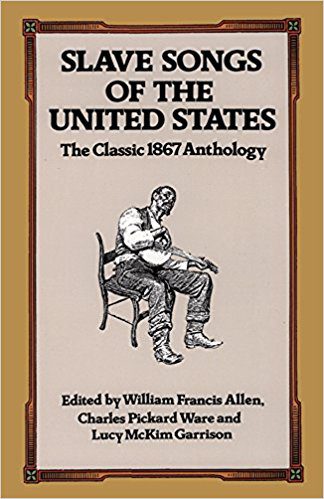A post by Amariah Sledge & Kennedy Brooks
Origin of the Genre:
Before their arrival in America, music was somehow integrated into everyday happenings for Africans. Often times this music was accompanied by dancing while working or during a celebration. This occurrence persisted even as Africans were brought to North America and Caribbean islands. The prevalence of African music was greater in the Caribbean than in North American colonies due to the mere fact that the population of slaves in the Caribbean was much greater than the population in North America. It was not until the 1800s that descriptions of any musical activity began because by this point, the population of African Americans was steadily growing.
Characteristics of the Genre:
African Americans’ singing and dancing was limited to one day a week, their day of rest. Even though clergymen viewed this singing and dancing as disgraceful and sacrilegious, the dancing and drumming persisted until drumming was banned. A quick substitute was found as African Americans employed a practice known as the patting juba. This technique accompanied singing and dancing as people made rhythms using their bodies as the instrument, which is truly a testament to their innovation. As African Americans spent more time in the New World, various forms of secular music, most paying some homage to traditions in Africa, came about. Children’s game songs were sung by children as they played with their peers. They would gather in circles singing and dancing, imitating the actions of the adult African Americans around them. Another form of secular folk music was the Work Song. Similar to the work songs sung in Africa (before slavery), singing allowed African Americans to coordinate movements. Characteristics of both these forms of folk music, and folk music in general, was call-and-response singing, group singing, and the field cry or hollar. Use of the banjo and fiddle was also common in folk music and would later provide another way for slave masters to make money off of their enslaved people.
[embedyt] https://www.youtube.com/watch?v=SIoWRVE-H58[/embedyt]
Social Implications:
To say that African Americans struggled during slavery is an large understatement. At the time they were singing these songs, their life conditions were beyond terrible. They worked long hours every day and were often victims of physical, mental, and emotional abuse. However, this did not stop them from singing their music as it seemed to be one of the few ways they could express themselves. At the time that these secular folk songs became vastly popular among African Americans who were enslaved, slavery was at its peak, the nation was in a civil war, and African Americans were gaining hope that they could soon be free.
Important Performers
- Elizabeth Cotten
- Solomon Northup
Commodification
The same dances and music practices that African Americans were condemned for in certain areas of the nation were actually utilized by whites in other areas. There is one account given by Thomas Jefferson’s brother where he describes how his guests, once tired from country dancing, would perform dances traditionally done by African Americans. There are other instances of African Americans performing on the banjo for audiences at balls or for other purposes. Whites would often put out advertisements if they had a slave that was talented on the fiddle to see if others may want to hire him. Of course the money that they made did not go into their own pockets, it went into the pockets of their holders/owners.
Influences of Future Genres
Secular folk music would eventually give way to the blues. The field holler and work song of folk music are the foundation of blues’ melodies while the blues’ harmonies and structures are derived from folk ballads.
Conclusory Opinions
African American music has such a rich history and to think that this secular folk music started it all is almost awe-inspiring. However, it is disheartening to assign speculated dates to its origins simply because that was the time that someone decided to write about it. But at the time African Americans could not document their own narratives, it was always up to Whites to articulate what was happening. As a result, there are so many folk songs and so many stories and meanings behind these songs that may have been lost simply because those writing accounts down could not look beyond the surface of this music. Even though we could not at the time, this just shows the importance of documenting our own narratives so that they may be told wholly and justly.


